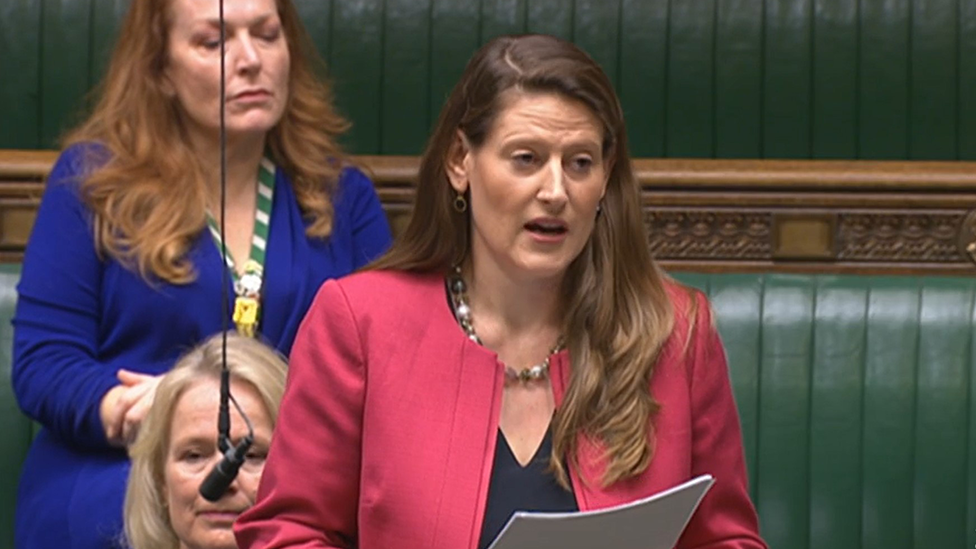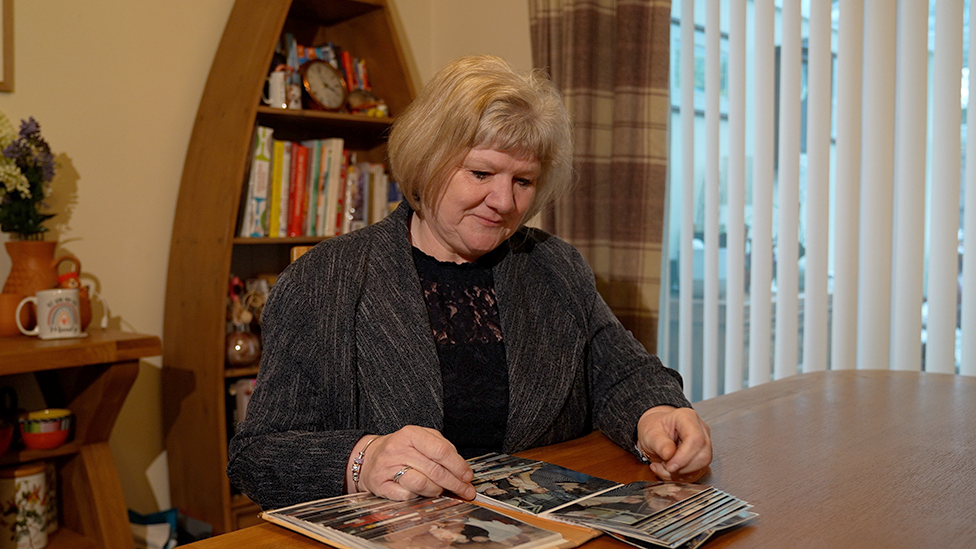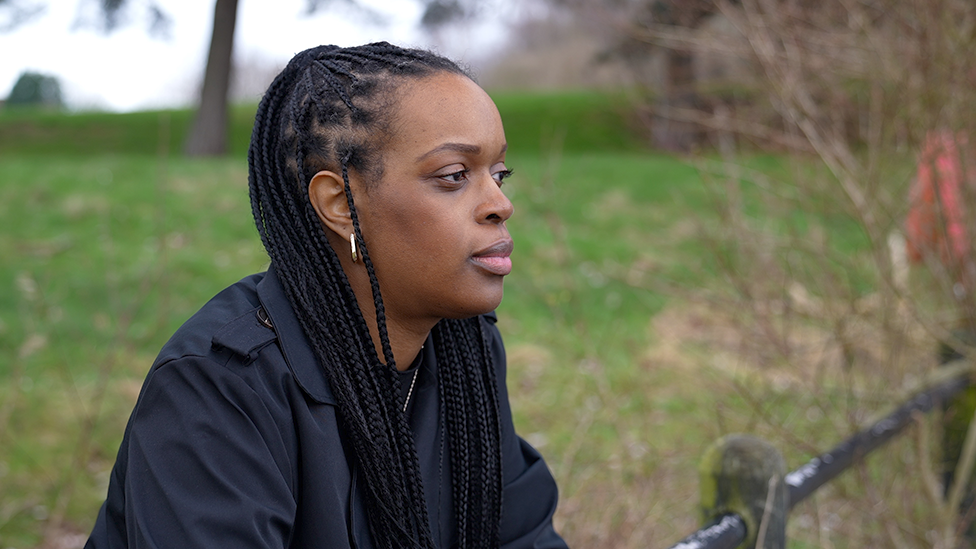'Overwhelming' response to birth trauma inquiry

Theo Clarke MP led the first parliamentary debate on birth trauma
- Published
An inquiry into birth trauma has received more than 1,300 submissions from families.
It is estimated that 30,000 women a year in the UK have suffered negative experiences during the delivery of their babies, while one in 20 develop post-traumatic stress disorder.
The investigation is a cross-party initiative, led by MPs Theo Clarke and Rosie Duffield, in collaboration with the Birth Trauma Association.
Ms Clarke the Conservative MP for Stafford, triggered the first ever parliamentary debate on the issue in October.
In an emotional exchange in the House of Commons, she described her own experience following her daughter's birth at the Royal Stoke University Hospital in 2022.
She bled heavily after suffering a tear and had to undergo two-hour surgery without general anaesthetic, due to an earlier epidural.
The Birth Trauma Association, which is administering the inquiry, invited the public to submit written accounts of their own experiences.
Dr Kim Thomas, from the association, said she had received an "overwhelming" number of personal accounts. Some cases date back as far as the 1960s.

Mandy Layton was diagnosed with PTSD following the birth of her son
"Some of the saddest stories we've had have been from dads," she said.
"In some cases there's a medical emergency and they don't know what's happening.
"They think they might be going home without either their wife of their baby. It's a really frightening experience for them."
'Lucky to be alive'
Mandy Layton, from Walsall, had life-saving surgery following the birth of her son 23 years ago.
"I came around [afterwards] and the nurse told me I was very lucky to be alive. I was shown a photograph of my son and I didn't actually get to hold him until he was three days old."
Her son remained in hospital for several weeks and spent months receiving treatment, due to breathing problems.
As his first birthday approached she was diagnosed with post-traumatic stress disorder.
"I just used to sit and cry when the children were asleep, nobody knew that," she said.
"They referred me to a psychologist and it's the best thing that I did, because she validated that the way I was feeling was normal."

Divina Johnson works as a life coach, supporting women who have suffered birth trauma
Divina Johnson, from Erdington in Birmingham, experienced trauma during the births of all three of her children.
Since her youngest was born in 2021 she has retrained as a life coach, to offer support to other women who have faced similar situations.
"A lot of them, like me, experience what I call functioning trauma," she said.
"It's a silent pain that we deal with. We might be doing everything we need to as mothers, but then crying ourselves to sleep at night."
She hopes the inquiry will help improve maternity services across the country.
"Childbirth doesn't need to be the way that it was for me," Ms Johnson said. "Many women have a baby without having this type of trauma.
"If you really look at birth trauma, it's about how she was treated while giving birth."
The deadline for submissions to the inquiry closed on 20 February.
It is due to report its findings in April, when it is hoped it will help develop policy to improve maternity services.
You can see more on this story on BBC Politics Midlands on BBC One at 10:00 GMT on Sunday 25 February, or afterwards on BBC iPlayer.
Follow BBC West Midlands on Facebook, external, X, external and Instagram, external. Send your story ideas to: newsonline.westmidlands@bbc.co.uk, external